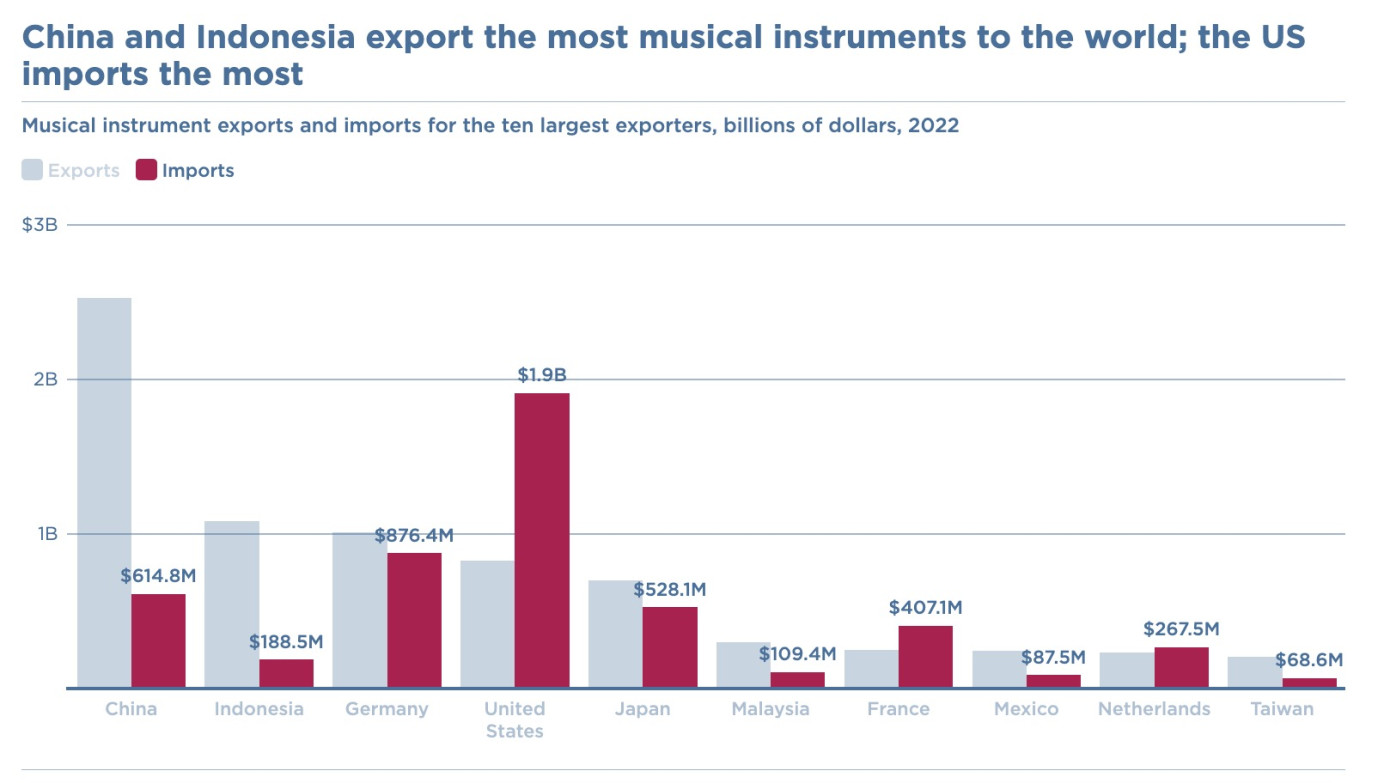Imports of beginner-level musical instruments, especially those from China, face a potential price increase of 10% to 60% if the incoming U.S. administration implements its proposed tariffs on imported goods. These measures would disproportionately affect young musicians, students, and school music programs, according to Cullen S. Hendrix, senior fellow at the Peterson Institute for International Economics (PIIE).
Globalization has significantly shaped the musical instrument market. For example, Fender manufactures its iconic Stratocaster guitars across five countries: the U.S., Mexico, Japan, Indonesia, and China. This global distribution allows the company to offer products ranging from premium, American-made guitars retailing for $1,200 or more to entry-level models priced at $200 to $600, which are manufactured in China and Indonesia. These affordable options cater to beginners and lower-income households, sustaining the industry’s future consumer base.
The United States, despite being a significant exporter of musical instruments, has a trade deficit in the sector, relying on countries like China and Indonesia for cost-effective production of beginner models. The proposed tariffs could shift production to other low-cost regions like Indonesia, but this would still result in price hikes of 10% to 20%, increasing costs for consumers globally.
Image: Peterson Institute for International Economics
Such tariffs would likely leave high-end instruments largely unaffected but could erode accessibility for aspiring musicians. With China now the largest global market for musical instruments and U.S. manufacturers focusing on high-value, American-made products, tariffs seem unnecessary to protect domestic industries. Their primary impact would be felt by the lower-income demographics and educational institutions dependent on affordable instruments.
